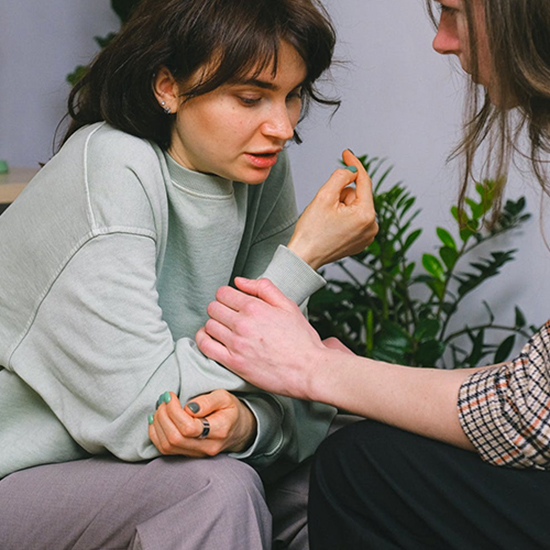Learning from strokes
I remember it well. I met my mother, who flew in from Vancouver where she lived. She was over 80 but I did not expect the skinny, wobbly, white-haired woman who came walking towards me.
She seemed like a shadow of my mother who was around 20 pounds heavier, always smiling and laughing, a jolly woman if I ever knew one. But this woman was my mother!
I felt like a massive bucket of ice water was poured over me. I knew I could not let her know how numb and dumb I felt.
She was still competent, however. She could dress herself up, put on her makeup well. We could go out with friends, though she appeared spaced out in conversations. There was no one who took care of her. Only me. I am, after all, an only child.
Sunday morning I did our laundry, felt very normal, though still aware of my fear. I was so afraid I would fail at taking care of my mother. I set breakfast, then after that, I cleared the table and set it for lunch that my son was bringing. Mom rested and I went to check the dining table again.
Everything has changed
That’s when I heard a male voice in my head say, Everything has changed. Now when I look back, I realize that must have been the precise time of my stroke, which was caused by the fear I felt about taking care of my mother.

My son arrived. I wanted to say, “Why are you so late?” But strange words came out of my mouth. Now I realized my speech was garbled, the first sign of a stroke. But none of us knew then that I had had a stroke.
If I had a stroke my mind would not be working properly. No one who has had a stroke would know enough at the moment to do anything about it by him or herself.
After lunch I lay down on the nearest sofa and slept. The next day I took my mother to spend a few days with her favorite cousin. I slept along the way.
I had appointments but couldn’t talk much, couldn’t think of anything to say. I was supposed to start a writing class but I couldn’t do it. I’d keep my appointments and sleep in between, crawl into bed fully dressed and sleep a little until the next meeting.
Finally, on Thursday night, my daughters called saying they would bring me to the hospital. They had called a psychotherapist friend of ours and said, “Something is wrong with Mom. She’s behaving very strangely.” They showed her texts they received from me. She said, “Take your mother to the hospital. She has had a stroke.”
How do you know when a person has had a stroke? I’m sure you’ve received the fliers on your cellphone or email. Sudden numbness or weakness in the face, arm, leg or one side of the body. Blurred speech. Sudden trouble seeing in one or both eyes. Sudden trouble walking, dizziness.
But do you remember these when someone — someone you live with — displays them? After my own stroke, yes, I remember them. But not a moment before
I remembered them when my husband had what is known as an ischemic stroke two years ago. He suddenly spoke in slurred speech. I called my neurologist. She required an MRI that gave her a clearer picture of what he had and then prescribed medicine. He seemed to recover from the ischemic stroke.
I don’t know the exact meaning of “ischemic,” but I have been made to understand that it is a small temporary clot in the brain. It passes rather quickly. But they did not tell me that it could be followed by bigger strokes. My husband and I have to stop eating adobo, sinigang — the fun dishes in life.
I received by email things that one should carry in case one has a stroke. Once upon a time I put them together and carried them in my bag. One of them that I still have is an injection syringe.
Then one day, as I cleaned my bag, I tossed out the kit because I realized that if I had a stroke I would not be present enough to poke the needle through my fingertips.
If I had a stroke my mind would not be working properly. No one who has had a stroke would know enough at the moment to do anything about it by him or herself.
I think there is a tremendous difference in knowledge between the medical community and ordinary people who get sick. Doctors tell you what to do or they send fliers through email. You obey without thinking that at the moment you get a stroke, your mind is not there.
Usually there is hardly any way of saving you. You just have to grin and bear it until someone — like my children did — calls a friend’s attention to your behavior, then salvation may or may not come.
So salvation in human terms is not so easy. In the end, I believe firmly, our lives are in God’s hands. He either takes us or saves us.


